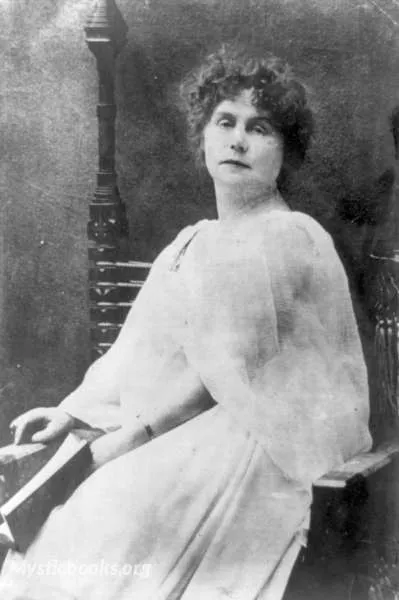
Timeline
Title
Country/Nationality
Marie Corelli
Mary Mackay known by her pseudonym Marie Corelli awas an English novelist.
She enjoyed a period of great literary success from the publication of her first novel in 1886 until World War I. Sales of Corelli's novels exceeded the combined sales of popular contemporaries, including Arthur Conan Doyle, H. G. Wells, and Rudyard Kipling, although critics often derided her work as "the favourite of the common multitude".
Mary Mackay was born in London to Elizabeth Mills, a servant of the Scottish poet and songwriter Dr Charles Mackay, her biological father. In 1866, eleven-year-old Mary was sent to a Parisian convent to further her education. She returned to Britain four years later in 1870.
Mackay began her career as a musician, giving piano recitals and adopting the name Marie Corelli for her billing. Eventually she turned to writing and published her first novel, A Romance of Two Worlds, in 1886. In her time, she was the most widely read author of fiction. Her works were collected by Winston Churchill, Randolph Churchill, and members of the British Royal Family, among others.
She faced criticism from the literary elite for her allegedly melodramatic writing. In The Spectator, Grant Allen called her "a woman of deplorable talent who imagined that she was a genius, and was accepted as a genius by a public to whose commonplace sentimentalities and prejudices she gave a glamorous setting." James Agate represented her as combining "the imagination of a Poe with the style of an Ouida and the mentality of a nursemaid."
A recurring theme in Corelli's books is her attempt to reconcile Christianity with reincarnation, astral projection, and other mystical ideas. She was associated at some point with the Fraternitas Rosae Crucis; a Rosicrucian and mystical organization, and her books were a part of the foundation of today's corpus of esoteric philosophy. Her portrait was painted by Helen Donald-Smith.
Corelli famously had little time for the press. In 1902 she wrote to the editor of The Gentlewoman to complain that her name had been left out of a list of the guests in the Royal Enclosure at the Braemar Highland Gathering, saying she suspected this had been done intentionally. The editor replied that her name had indeed been left out intentionally, because of her own stated contempt for the press and for the snobbery of those wishing to appear in "news puffs" of society events. Both letters were published in full in the next issue.
The writer also gained some fame after her letter on the curse of the Pharaohs to New York World was published. Corelli claimed that she had warned George Herbert, 5th Earl of Carnarvon (one of the finders of the tomb of Tutankhamun) about the "dire punishment" likely to occur to those who rifle Egyptian tombs, claiming to cite an ancient book that indicated that poisons had been left after burials.
Corelli spent her final years in Stratford-upon-Avon. There she fought hard for the preservation of Stratford's 17th-century buildings, and donated money to help their owners remove the plaster or brickwork that often covered their original timber-framed façades. Novelist Barbara Comyns Carr mentions Corelli's guest appearance at an exhibition of Anglo-Saxon items found at Bidford-on-Avon in 1923. Corelli's eccentricity became well known. She would boat on the Avon in a gondola, complete with a gondolier, whom she had brought over from Venice. In his autobiography, Mark Twain, who had a deep dislike of Corelli, describes visiting her in Stratford and how the meeting changed his perception.
For over forty years, Corelli lived with her companion, Bertha Vyver, to whom she left everything when she died. She did not identify herself as a lesbian, but several biographers and critics have noted the frequent erotic descriptions of female beauty that appear in her novels, although they are expressed by men.
Corelli was known to have expressed a genuine passion for the artist Arthur Severn, to whom she wrote daily letters from 1906 to 1917. Severn was the son of Joseph Severn and close friend of John Ruskin. In 1910, she and Severn collaborated on The Devil's Motor, with Severn providing illustrations for Corelli's story. Her love for the long-married painter, her only known romantic attachment to a man, remained unrequited; in fact Severn often belittled Corelli's success.
During the First World War, Corelli's personal reputation suffered when she was convicted of food hoarding.
She died in Stratford and is buried there in the Evesham Road cemetery. Later Bertha van der Vyver was buried alongside her.
Corelli is generally accepted to have been the inspiration for at least two of E. F. Benson's characters in his Lucia series of six novels and a short story. The main character, Emmeline "Lucia" Lucas, is a vain and snobbish woman of the upper middle class with an obsessive desire to be the leading light of her community, to associate with the nobility, and to see her name reported in the social columns, coupled with a comical pretension to education and musical talent, neither of which she possesses. She also pretends to be able to speak Italian, something Corelli was known to have done. Miss Susan Leg is a highly successful writer of pulp romances under the pseudonym Rudolph da Vinci. In E.F. Benson's "Secret Lives" a famous novelist Susan Leg, writes a book in which the heroine is another writer - Serena Lomond. This character is meant to be very similar to Susan herself, but in fact Serena Lomond is the spit of Mavis Clare in Marie Corelli's "The Sorrows of Satan". The character makes her appearance in Benson's work a few years after Marie Corelli's death in 1924.
Books by Marie Corelli
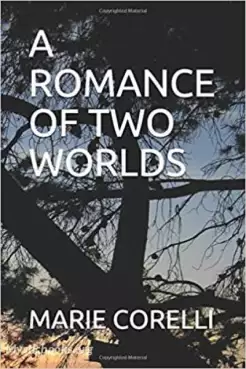
A Romance of Two Worlds
A Romance of Two Worlds was Marie Corelli's first novel, published in 1886. It referenced the contemporary debate between creationism and evolution, as well as supernatural themes, overlaid with elements of science fiction. The book was an immediate...
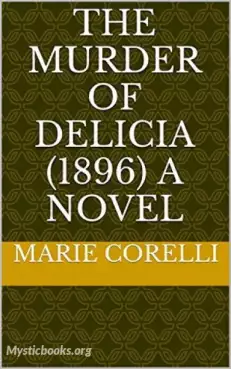
The Murder of Delicia
Delicia was murdered, but no court would ever get the case. She was murdered by the indiscretions of her husband, from the wounds they caused her, and due to her inability to go on with any lustre and feeling of triumph of love in her heart. So one m...
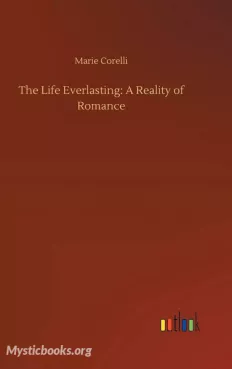
The Life Everlasting: A Reality of Romance
In this thought-provoking novel, Marie Corelli explores the nature of reality and the possibility of an afterlife. "The Life Everlasting: A Reality of Romance" is a novel by Marie Corelli that tells the story of Arion, a young man who dies and is tr...
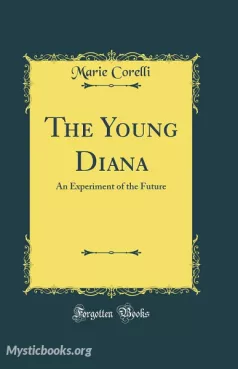
The Young Diana
In a world where science is on the brink of creating eternal youth, one woman will have to decide whether to embrace her new life or fight for her old one. Diana is a middle-aged woman who is tired of her life. She is unhappy in her marriage and fee...
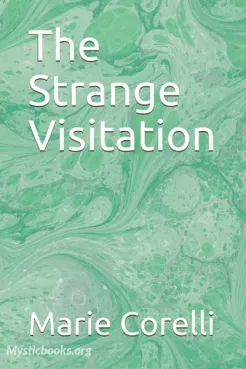
The Strange Visitation
A mysterious stranger arrives in a small village, claiming to be a prophet sent by God. The stranger, who calls himself John Silence, is a tall, dark man with piercing eyes. He quickly gains the trust of the villagers, who are drawn to his charisma...
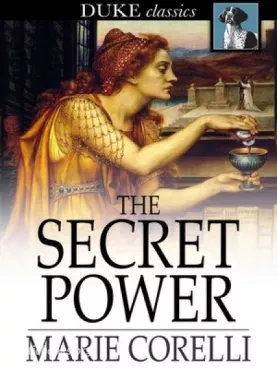
The Secret Power
In the heart of the Egyptian desert, where ancient secrets lie buried beneath the sands, a brave heroine named Avis stumbles upon a hidden city of immortals. These enigmatic beings, known as the Aethiopians, possess a secret power that could revoluti...

Ziska
A mysterious princess captivates a group of European tourists in exotic Egypt, leading them on a journey of reincarnation, romance, and mild horror.
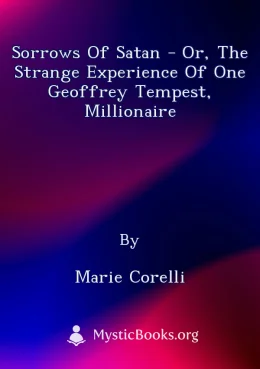
Sorrows of Satan - Or, the Strange Experience of One Geoffrey Tempest, Millionaire
In Marie Corelli's *Sorrows of Satan*, Geoffrey Tempest, a struggling writer, finds himself thrust into a life of unimaginable wealth and luxury after inheriting a fortune. His newfound prosperity attracts the attention of Prince Lucio Rimanez, a cha...
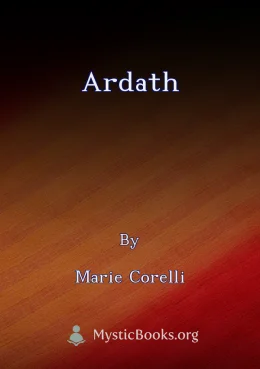
Ardath
Ardath, by Marie Corelli, delves into the profound themes of spirituality, doubt, and the search for meaning in a world often perceived as cold and indifferent. Theos Alwyn, a disillusioned poet, embarks on a journey to a remote Caucasus monastery, s...
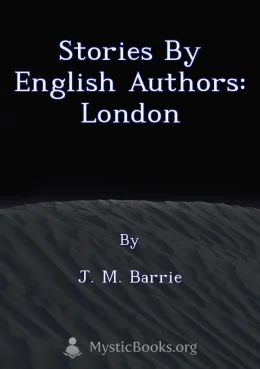
Stories by English Authors: London
This collection of seven short stories by prominent English authors of the late 19th and early 20th centuries offers a rich tapestry of literary styles, tones, and themes. From the whimsical humor of J.M. Barrie to the poignant social commentary of I...